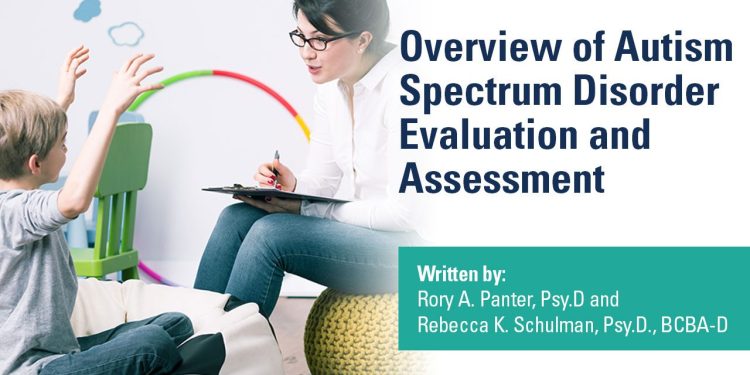Autism Spectrum Disorder (ASD) is a complex neurodevelopmental condition that manifests in various ways, from communication challenges to unique behavioral patterns. Given the diversity of presentations, an accurate and thorough assessment is crucial for identifying autism and developing effective intervention strategies. Autism-specialized psychologists play a vital role in this process, bringing their expertise to ensure that the assessment is comprehensive, sensitive, and tailored to the individual’s needs.
The Importance of Specialized Autism Assessment
Autism is a spectrum disorder, meaning that it can present in numerous ways across different individuals. Some people may exhibit more pronounced social communication difficulties, while others might show repetitive behaviors or intense interests. This variability necessitates an assessment approach that is nuanced and adaptable, which is where autism-specialized psychologists excel.
Specialized psychologists have in-depth knowledge of the characteristics and manifestations of autism. They are trained to recognize both the overt and subtle signs of autism, including those that might be missed by general practitioners or non-specialists. This expertise is particularly important in cases where autism presents alongside other conditions, such as ADHD, anxiety, or learning disabilities, which can complicate the diagnostic process.
Components of a Comprehensive Autism Assessment
A thorough autism assessment conducted by a specialized psychologist typically involves several components, each designed to capture a complete picture of the individual’s functioning.
- Developmental History and Clinical Interview: The assessment begins with gathering a detailed developmental history. This involves interviewing the individual (if appropriate), parents, or caregivers to understand the person’s early development, including milestones, social behaviors, communication patterns, and any concerns raised during childhood. The clinical interview allows the psychologist to gain insight into the individual’s current functioning, strengths, and challenges.
- Behavioral Observation: Direct observation is a key part of the assessment process. Specialized psychologists are skilled in observing behaviors in different contexts, such as during play, social interactions, or structured activities. They look for specific patterns associated with autism, such as difficulties with eye contact, challenges in reciprocal communication, repetitive movements, or a strong preference for routines.
- Standardized Assessments: Specialized psychologists use a variety of standardized tools and tests to assess for autism. These may include:
- Autism Diagnostic Observation Schedule, Second Edition (ADOS-2): A semi-structured assessment that involves interacting with the individual through a series of tasks and activities. It is designed to elicit behaviors that are relevant to diagnosing autism.
- Autism Diagnostic Interview-Revised (ADI-R): A comprehensive interview with parents or caregivers that focuses on the individual’s developmental history and current behavior, particularly in areas related to social interaction, communication, and repetitive behaviors.
- Social Responsiveness Scale (SRS): A questionnaire that assesses the severity of autism symptoms as they occur in natural social settings.
These tools are carefully selected and interpreted by the psychologist, ensuring that the assessment is both reliable and valid.
- Cognitive and Developmental Testing: In addition to autism-specific assessments, psychologists often conduct cognitive and developmental testing to better understand the individual’s intellectual functioning, learning style, and developmental progress. Tests such as the Wechsler Intelligence Scale for Children (WISC) or the Differential Ability Scales (DAS) can provide valuable information about the person’s cognitive strengths and challenges.
- Sensory Profile Assessment: Many individuals with autism experience sensory processing differences. A specialized psychologist may use tools like the Sensory Profile to assess how the individual responds to sensory stimuli, which can inform strategies for managing sensory sensitivities or seeking out sensory input.
- Assessment of Co-occurring Conditions: Autism often co-occurs with other conditions such as anxiety, ADHD, or language disorders. A thorough assessment includes screening for these co-occurring conditions to ensure that the full range of the individual’s needs is addressed. This might involve additional testing or collaboration with other specialists, such as speech and language therapists or psychiatrists.
The Role of Expertise in Accurate Diagnosis
The expertise of an autism-specialized psychologist is crucial in differentiating autism from other conditions with overlapping symptoms. For example, social anxiety might present with social withdrawal, but the underlying reasons for this behavior differ significantly from those in autism. Similarly, a child with ADHD might exhibit impulsivity and difficulty with routines, which could be mistaken for certain behaviors associated with autism.
Specialized psychologists are trained to recognize these distinctions, ensuring that the diagnosis is accurate and based on a comprehensive understanding of the individual’s behavior and cognitive processes. This precision in diagnosis is essential for developing effective treatment plans that address the individual’s specific needs.
Tailoring the Assessment to the Individual
Autism assessments are not one-size-fits-all. Specialized psychologists understand the importance of tailoring the assessment process to the individual. This might involve adjusting the testing environment to reduce sensory overload, using alternative communication methods for non-verbal individuals, or incorporating culturally relevant considerations into the assessment.
For example, some individuals might perform better in a familiar setting rather than in a clinical environment. Others might require more time to engage with the assessment tasks, or they might need the use of visual supports to better understand instructions. The psychologist’s ability to adapt the assessment process ensures that the individual’s true abilities and challenges are accurately reflected.
The Impact of an Accurate Assessment
An accurate and thorough autism assessment conducted by a specialized psychologist has far-reaching implications. It provides a clear diagnosis, which is the first step in accessing appropriate support and services. It also informs the development of individualized intervention plans that can significantly improve the individual’s quality of life.
For children, early diagnosis and intervention can lead to better outcomes in communication, social skills, and academic performance. For adults, an accurate diagnosis can offer a sense of understanding and validation, as well as access to support systems that may have been previously unavailable.
Moreover, a well-conducted assessment can help families and caregivers understand their loved one’s needs and strengths, empowering them to advocate for the necessary accommodations and interventions in educational, social, and work settings.
Conclusion
Autism assessments conducted by specialized psychologists are vital for accurately identifying and understanding autism. These professionals bring a depth of knowledge and expertise that ensures the assessment is comprehensive, individualized, and sensitive to the unique characteristics of each person. Through their work, specialized psychologists play a critical role in ensuring that individuals with autism receive the support and services they need to thrive.








































